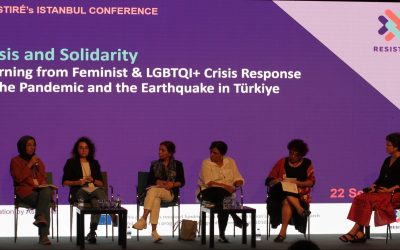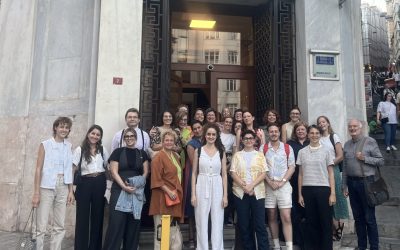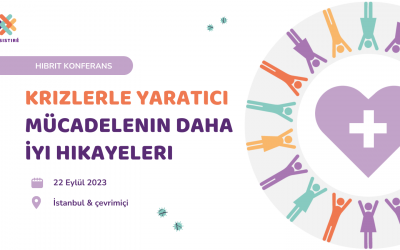History tells us that pandemics are not good for equality. While the COVID-19 crisis is exposing and exacerbating inequalities at the global level, early evidence highlights how sex and gender are influencing both the outcomes of the pandemic and its negative impact on inequalities.
Women have been hit harder than men by the political responses to the pandemic
We are experiencing a health, humanitarian, economic and social crisis that affects us all, but its consequences are not the same for everyone. As a group, women have been hit harder by the political responses to the crisis than men; an inequality which increases depending on their class, age, dis/ability or migration status. Not all women were able to keep their jobs, afford childcare, and working safely from home; many of them were left unemployed, with an unequal distribution of responsibility to care for children and elders, or even trapped in abusive households.
A research project based on co-creation, informed by a gender+ perspective
RESISTIRÉ is carrying out research activities in the EU27, Serbia, Turkey, the UK, and Iceland to gather evidence on the unequal impact of COVID-19 policies on women and other vulnerable groups, aiming at providing the necessary knowledge to design sustainable solutions.
Our research activities draw on a policy analysis framework based on a gender+ approach, acknowledging the intersections of gender with age, race/ethnicity, class, disability and sexuality.
Empirically, the activities are grounded in nine different policy domains, including all the domains outlined by the European Commission in its Gender Equality Strategy: ending gender-based violence; challenging gender stereotypes; closing gender gaps in the labour market; achieving equal participation across different sectors of the economy; addressing the gender pay and pension gaps; closing the gender care gap, and achieving gender balance in decision-making and in politics.
To these policy domains, RESISTIRÉ adds a domain dedicated to the fundamental human rights as well as a domain dedicated to environmental justice, as outlined by the Beijing platform.
Within this framework, the research activities of the project collect, generate, review and analyse the evidence of gendered inequalities affected by the pandemic and its policy responses, their evolution, and how they intersect. The approach will be sensitive to both a women’s empowerment perspective, as well as one of gender equality where the needs of both women and men are considered.
Unpacking the nine policy domains of RESISTIRÉ
1. Gender-based violence
Government decisions to counter the pandemic, and particularly the “lockdown” measure, have had devastating effects on women and girls trapped in abusive relationships, and on LGBTQ+ children, youth and elders who live with unaccepting family members.
Women with limited economic resources and disabilities have less means of leaving abusive households, and are suffering more due to lockdown policies. Emerging data is also showing an increase in calls to domestic violence helplines in many countries since the outbreak of COVID-19.
RESISTIRÉ aims to understand how the prevalence of gender-based violence has changed during COVID-19, how the policies to contain the pandemic have impacted the victims and what policies have been successful in addressing the issue.
2. Gender stereotypes
Gender stereotypes influence our attitudes and everyday behaviour.
Some stereotypes have contributed to put individuals at a greater risk of infection: a greater propensity to smoke and drink, in line with a “macho” culture, as well as the perception of high hygiene standards and frequently washing one’s hands as feminine behaviours, have endangered men more than women.
RESISTIRÉ is gathering evidence of the different ways in which these stereotypes have affected people’s lives during the pandemic.
3. Work and labour market
How have COVID-19 policy responses affected the careers of women and vulnerable people?
One of the greatest impact of the pandemic has been on the employment of the overall population. The careers of women with unequal caring responsibilities have suffered the hardest blow, and many women were forced to leave their job when the burden of childcare increased during lockdown. Early evidence suggest that women are more at risk of bankruptcy. The high rate of unemployment in sectors that were severely hit by the pandemic, including the informal sector — were migrant women are overly represented — have affected women more than men.
RESISTIRÉ is investigating how the COVID-19 policies have failed to ensure that women where not disproportionately affected by the crisis, and which societal responses have been effective in mitigating the issue.
4. Economy
We observed how macroeconomic disparities between countries and geopolitical inequalities have played a role in exacerbating the inequalities caused by the pandemic: while some states have solid welfare regimes that eased the care burden for women and mitigated employment shocks, other states have less means to mitigate these adverse effects.
RESISTIRÉ is also gathering data on the impact of COVID-19 policies on inequalities from a macroeconomic perspective.
5. Gender pay and pension gaps
To what extent and how has COVID-19 affected retirement plans and pension gaps?
Closely linked to the higher risk of poverty experienced by women during the pandemic, evidence suggest that there will be repercussions on the gender pay gap and, by consequence, on the pension gap, with many women at a great risk of poverty in their elder age.
RESISTIRÉ is researching which groups have been affected the most, mapping the policy responses that have emerged or failed, to draw a lesson from what has been done and understand what we could have done better.
6. Gender care gap
Gender roles in households mean that the care tasks are disproportionately allocated to women, adding to other inequalities.
Poorer men and women are more represented in ‘’essential’’ jobs and may not be allowed to work from home, placing an extra burden on women when the family cannot afford childcare. Poorer families also tend to rely more on informal networks for help, an option that has been ruled out by social distancing policies.
This inequality intersects and increases other inequalities, and RESISTIRÉ seeks to understand how we failed to support vulnerable families during the pandemic and what inspiration we can draw from civil society responses.
7. Decision making and politics
The debate around the role of women in responding to the COVID-19 crisis has highlighted how countries where women held leadership positions have generally led effective responses to the pandemic.
Women, however, remain under-represented in decision-making processes; an under-representation which becomes even more evident when gender intersects with a low social economic status, migration status, or belonging to the LGBTQI+ community.
This exclusion puts their specific needs at risk of being overlooked in the development of recovery plans.
RESISTIRÉ is mapping which policies have been implemented to ensure the participation of women and marginalised people in the decision-making process to understand what can be done to ensure that their needs are represented in recovery policies.
8. Environmental justice
At a first glance, the link between gendered inequalities and environmental justice might seem less relevant than other policy domains. On the contrary, adopting a gender+ perspective to understand the effect of environmental issues is imperative, in particular when gender intersects with a low socio-economic status.
Not all women were able to work from home, and many women working essential jobs relied on public transportation, exposing themselves to a greater infection risk. Poorer people living in urban areas are more likely to live in overcrowded areas, associated with higher infection risks, and to suffer from higher levels of air pollution and noise, which are associated with respiratory and cardiovascular diseases which are risk factors for COVID-19.
Women, especially poorer women, are among the most affected by climate change. Meanwhile, their voices are often ignored in environmental planning and management.
RESISTIRÉ seeks to understand how to ensure women are involved in environmental decision-making at all levels, integrating their concerns in policies and programmes, and establishing ways to assess the impact of development and environmental policies on women.
9. Human and fundamental rights
The implementation of strict socially restraining measures during COVID-19 has raised profound concerns about compliance with fundamental human rights, including the right to non-discrimination, dignity, justice, and equality; the right to work and to receive an education; access to healthcare, privacy, and data protection.
RESISTIRÉ aims to investigate the impact of Covid-19 policy responses on the access to healthcare, and to understand what kind of gendered inequalities have been created or deepened in the context of healthcare-related responses, which policies have contributed to greater inequality, and how the gender+ inequalities among health workers and within health institutions have shaped the response to the pandemic.
Subscribe to our newsletter and stay updated on the project’s results!



